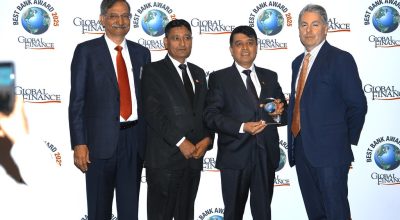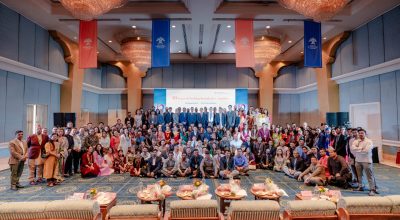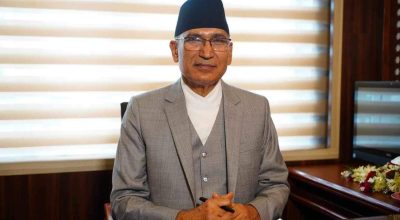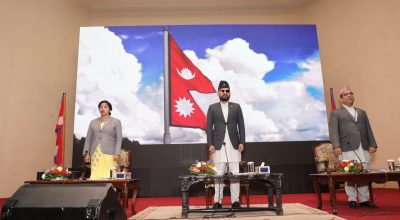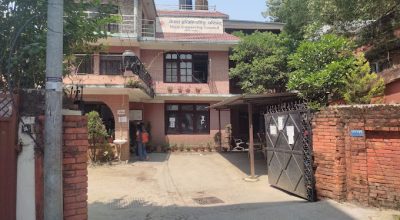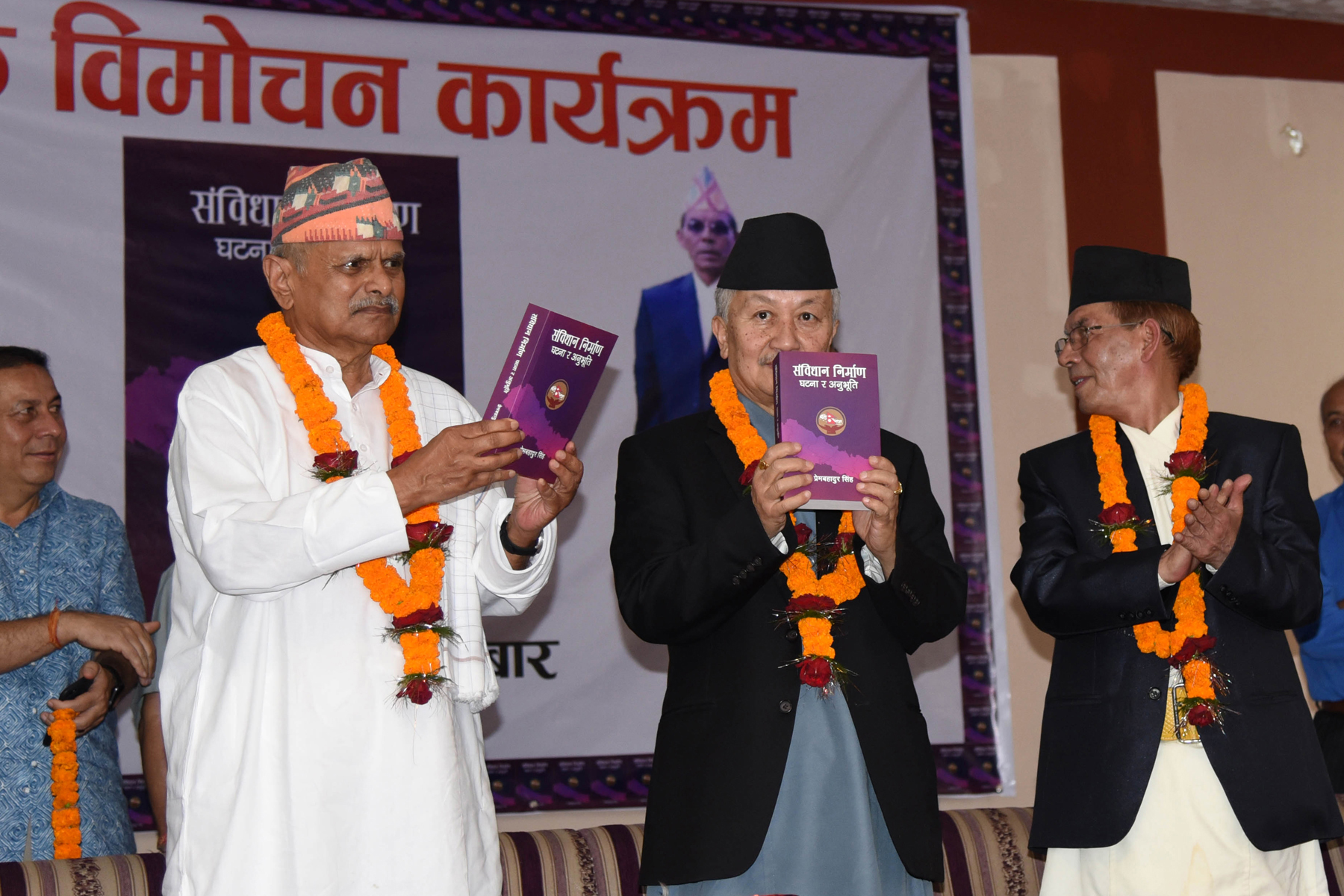
Kathmandu, Aug 24: Republic Nepal’s first-ever President, Dr Ram Baran Yadav has suggested the government and political parties to work in tandem by fully embracing the letter and spirit of the constitution, democracy, republic, federalism and inclusive proportional principles.
The former President said this while launching a book ‘Constitution Making: Reflections and Experiences’ penned by Chairperson of Samajbadi Janata Dal and former minster Prem Bahadur Singh in the capital city of Kathmandu on Saturday.
“It is the shared responsibility of all Nepali people to protect the achievements obtained through Nepali people’s 70-year-long sacrifices and struggles. It was not merely the outcome of 2007 April Uprising”, Dr Yadav added.
He further noted, ” The Nepal Constitution was promulgated when some of the forces were opting to deform the Constituent Assembly. It has embraced the aspirations of all communities despite some of the issues raised by some indigenous groups and communities”.
The ex-President urged the political parties to cautiously work to safeguard the achievements.
He also questioned whether the appointments made in constitutional bodies and judiciary are fair or not. “I call for the government and political parties to listen to the voice of the people and end the environment of mistrust”.
Ex-Chairperson of Constituent Assembly Subas Nembang said, “There are no lacunas and faults in the Constitution as it was prepared and promulgated in a prudent and conscience manner.
It depends on the capacity, wisdom and conscience of the office bearers of the political parties on how to implement the national charter”.
Nepali Congress lawmaker Radheshyam Adhikari said that negative remarks are being made on the constitution from those standing against republic, democracy, federalism and inclusive principles.
Former President of Nepal Bar Association Shambhu Thapa stressed the need for judiciary, executive and legislature to lay emphasis on institutional development of democracy and republic.
Constitutional expert Dr Bhimarjun Acharya praised the book as it has presented the reflections and experiences in the run-up to the making of the constitution.
Chairperson of Nepali Janata Dal Haricharan Sah complained that the constitution could not address concerns and aspirations of all communities.
Author Singh viewed that the book incorporating incidents and experiences during the making of the constitution would help next generations to understand the constitutional history of Nepal.





